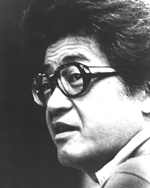A Quote by Robert Browning
You never know what life means till you die; even throughout life, tis death that makes life live.
Related Quotes
We are left with nothing but death, the irreducible fact of our own mortality. Death after a long illness we can accept with resignation. Even accidental death we can ascribe to fate. But for a man to die of no apparent cause, for a man to die simply because he is a man, brings us so close to the invisible boundary between life and death that we no longer know which side we are on. Life becomes death, and it is as if this death has owned this life all along. Death without warning. Which is to say: life stops. And it can stop at any moment.
Death is not the end, but the beginning of a new life. Yes, it is an end of something that is already dead. It is also a crescendo of what we call life, although very few know what life is. They live, but they live in such ignorance that they never encounter their own life. And it is impossible for these people to know their own death, because death is the ultimate experience of this life, and the beginning experience of another. Death is the door between two lives; one is left behind, one is waiting ahead.
Let people who do not know what to do with themselves in this life, but fritter away their time reading magazines and watching television, hope for eternal life... The life I want is a life I could not endure in eternity. It is a life of love and intensity, suffering and creation, that makes life worthwhile and death welcome. There is no other life I should prefer. Neither should I like not to die.
What if it is for life's sake that we must die? In truth we are not individuals; and it is because we think ourselves such that death seems unforgivable. We are temporary organs of the race, cells in the body of life; we die and drop away that life may remain young and strong. If we were to live forever, growth would be stifled, and youth would find no room on earth. Death, like style, is the removal of rubbish, the circumcision of the superfluous. In the midst of death life renews itself immortally.
By 'coming to terms with life' I mean: the reality of death has become a definite part of my life; my life has, so to speak, been extended by death, by my looking death in the eye and accepting it, by accepting destruction as part of life and no longer wasting my energies on fear of death or the refusal to acknowledge its inevitability. It sounds paradoxical: by excluding death from our life we cannot live a full life, and by admitting death into our life we enlarge and enrich it.
Suicide is an escape from life. What is life? An escape from death. This means that each of us must die twice. There is the death waiting for us ahead, and the death that comes pursuing from behind.... Once you are free at least from the death that comes pursuing you, you can relax and enjoy life as you go along.
To say it again, eternal life is less about a kind of time that starts when we die, and more about a quality and vitality of life now in connection to God. Eternal life doesn't start when we die; it starts now. It's not about a life that begins at death; it's about experiencing the kind of life now that can endure and survive even death.
So to be sick unto death is, not to be able to die-yet not as though there were hope of life; no, the hopelessness in this case is that even the last hope, death, is not available. When death is the greatest danger, one hopes for life; but when one becomes acquainted with an even more dreadful danger, one hopes for death. So when the danger is so great that death has become one's hope, despair is the disconsolateness of not being able to die.
Laughter. Yes, laughter is the Zen attitude towards death and towards life too, because life and death are not separate. Whatsoever is your attitude towards life will be your attitude towards death, because death comes as the ultimate flowering of life. Life exists for death. Life exists through death. Without death there will be no life at all. Death is not the end but the culmination, the crescendo. Death is not the enemy it is the friend. It makes life possible.
What makes people want to live forever? I don't think it's limited to our materialistic society of today. Even back to Christian times, they were writing about eternal life after death. So even in death there was a discussion of eternal life. I think this is a universal human desire. It's a horrible thought that this conscious being of ours - with our beautiful bodies - is one day going to decay and die. I don't think it so much has to do with the fear of meeting God, as it is just the thought that this all ends.






































